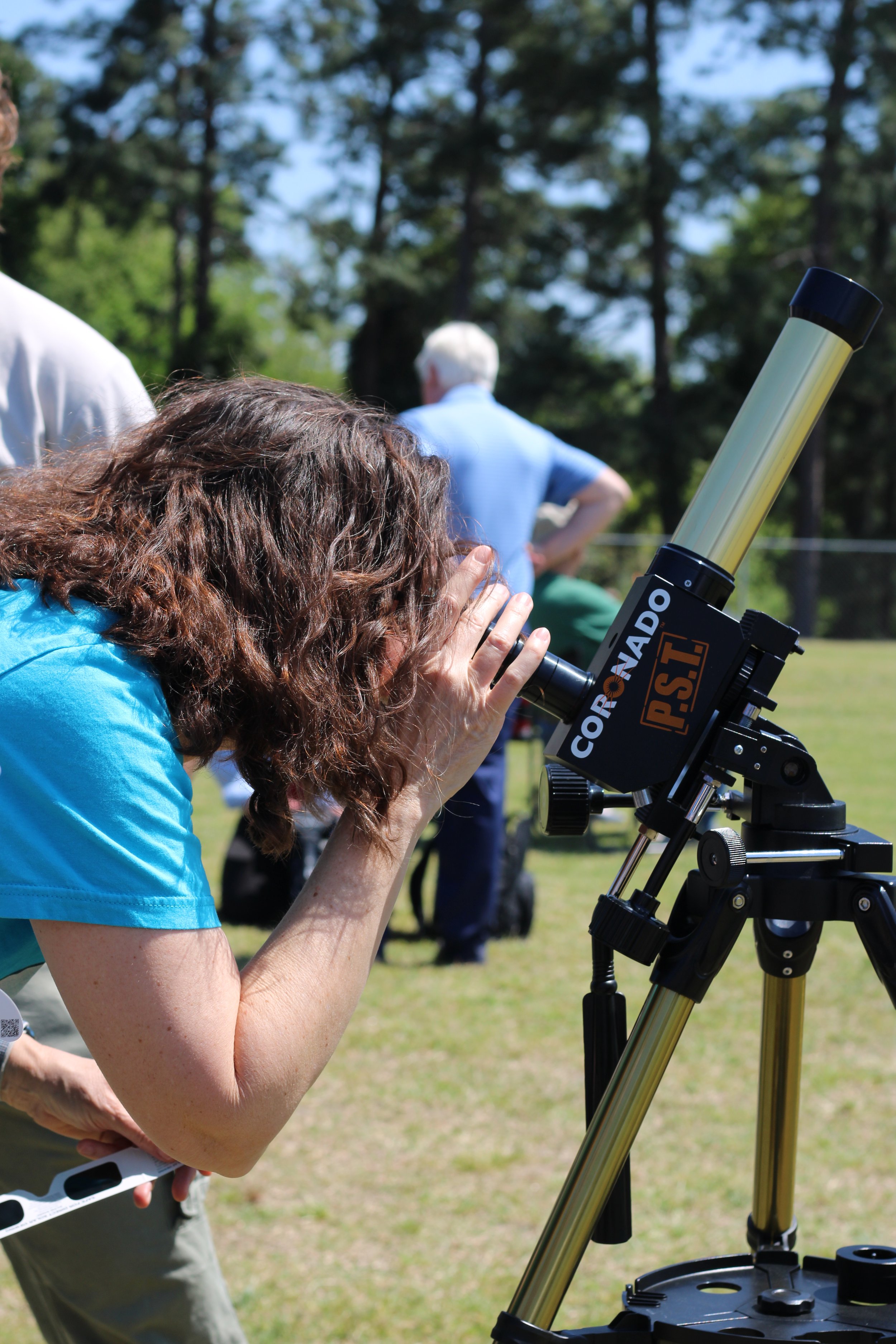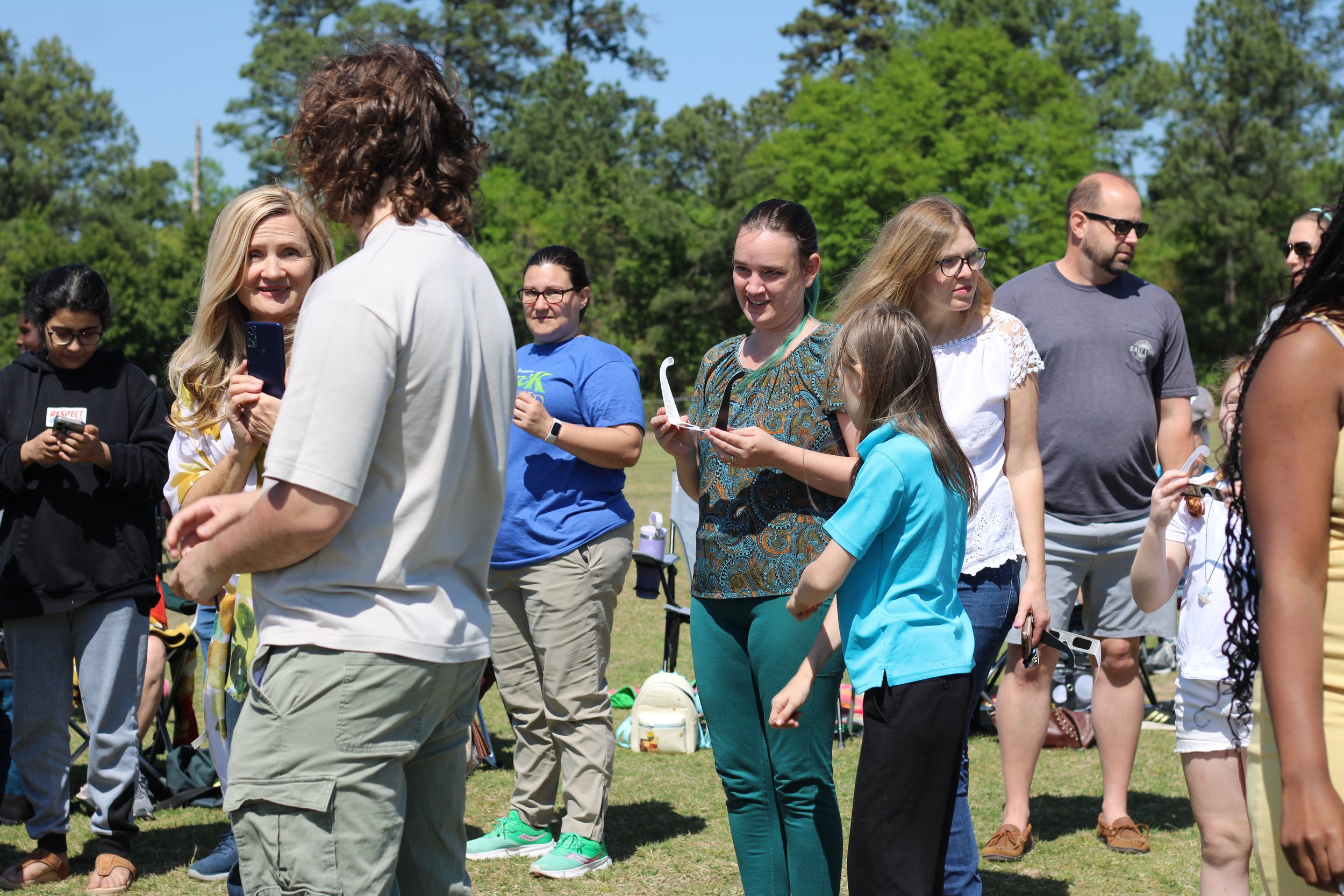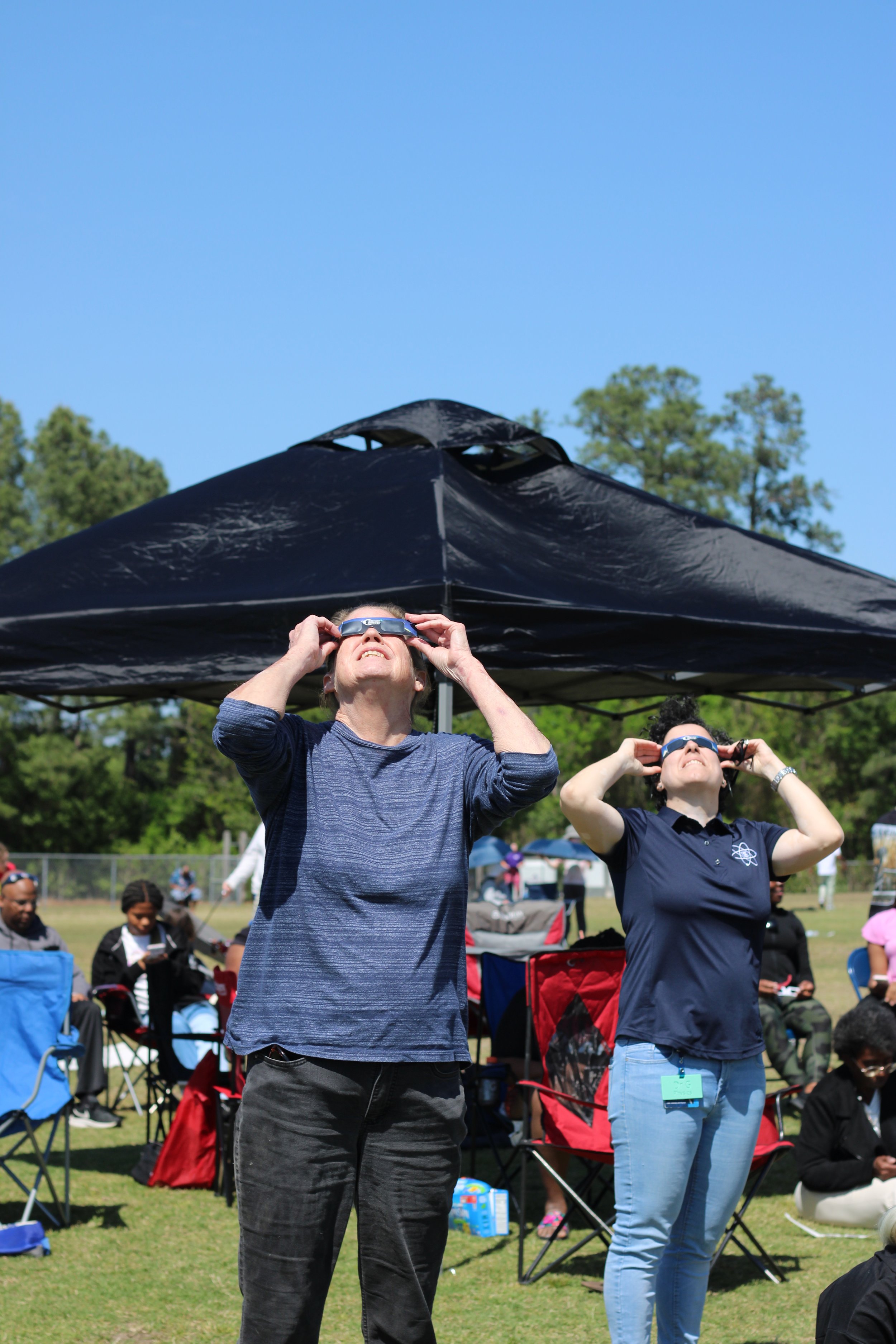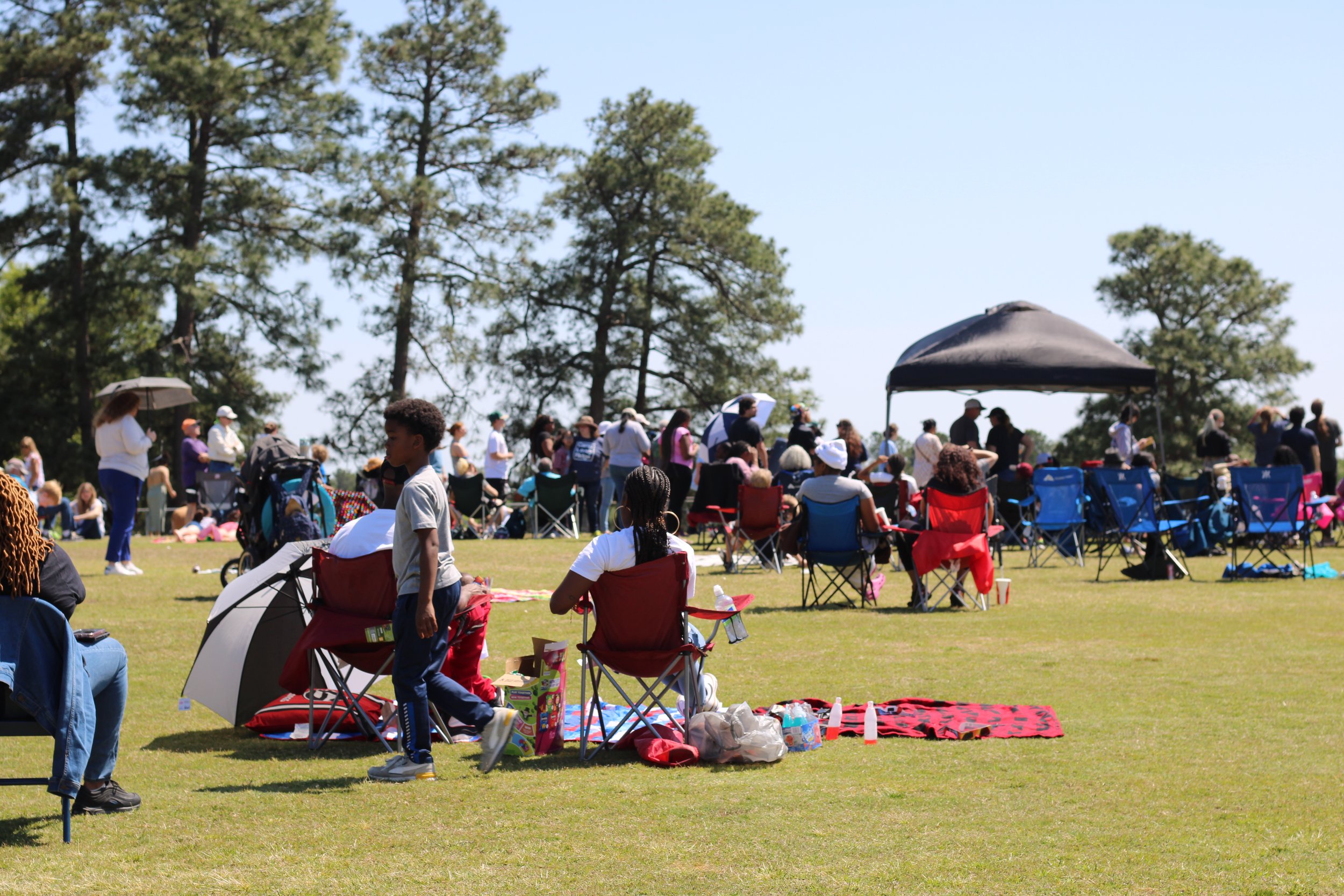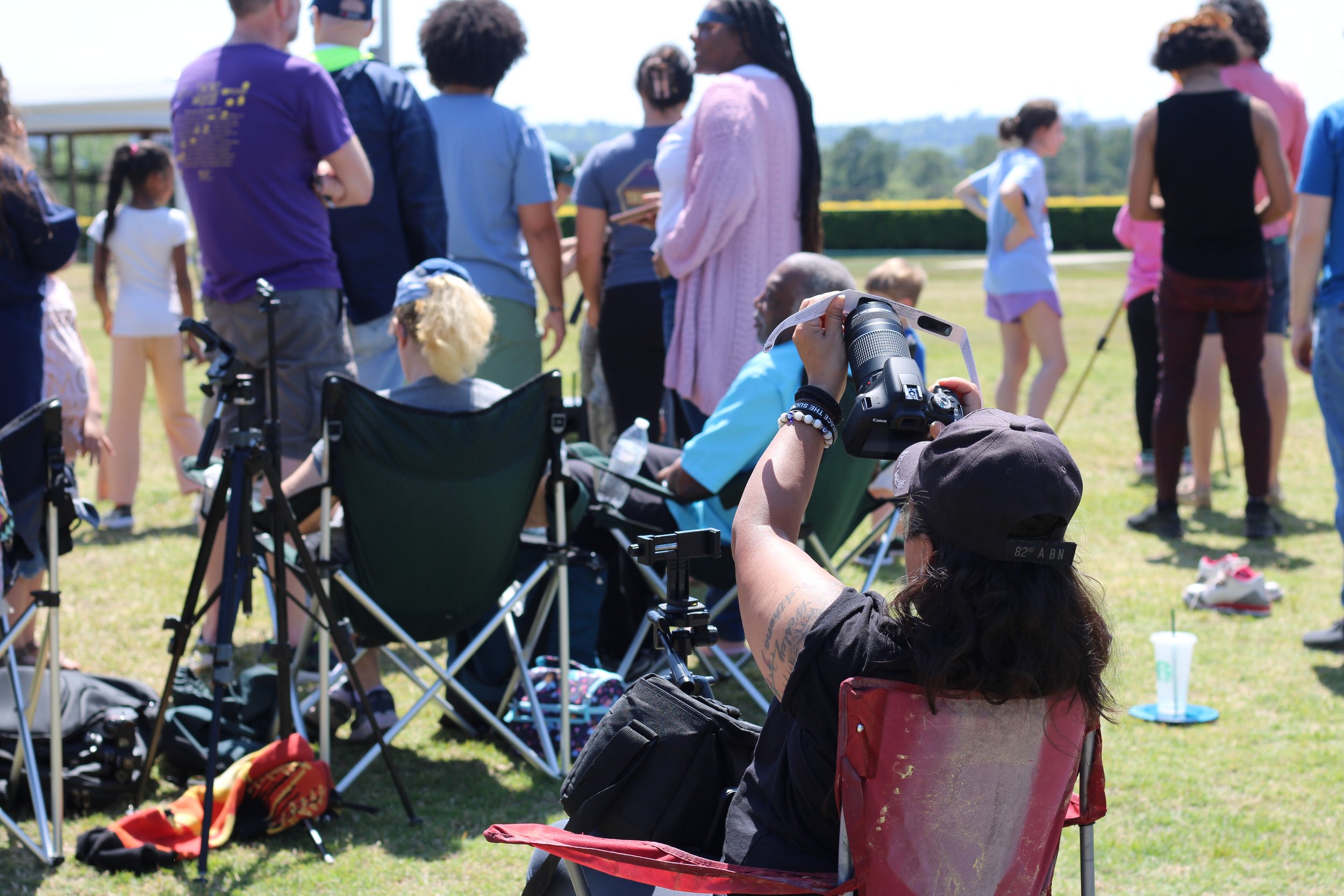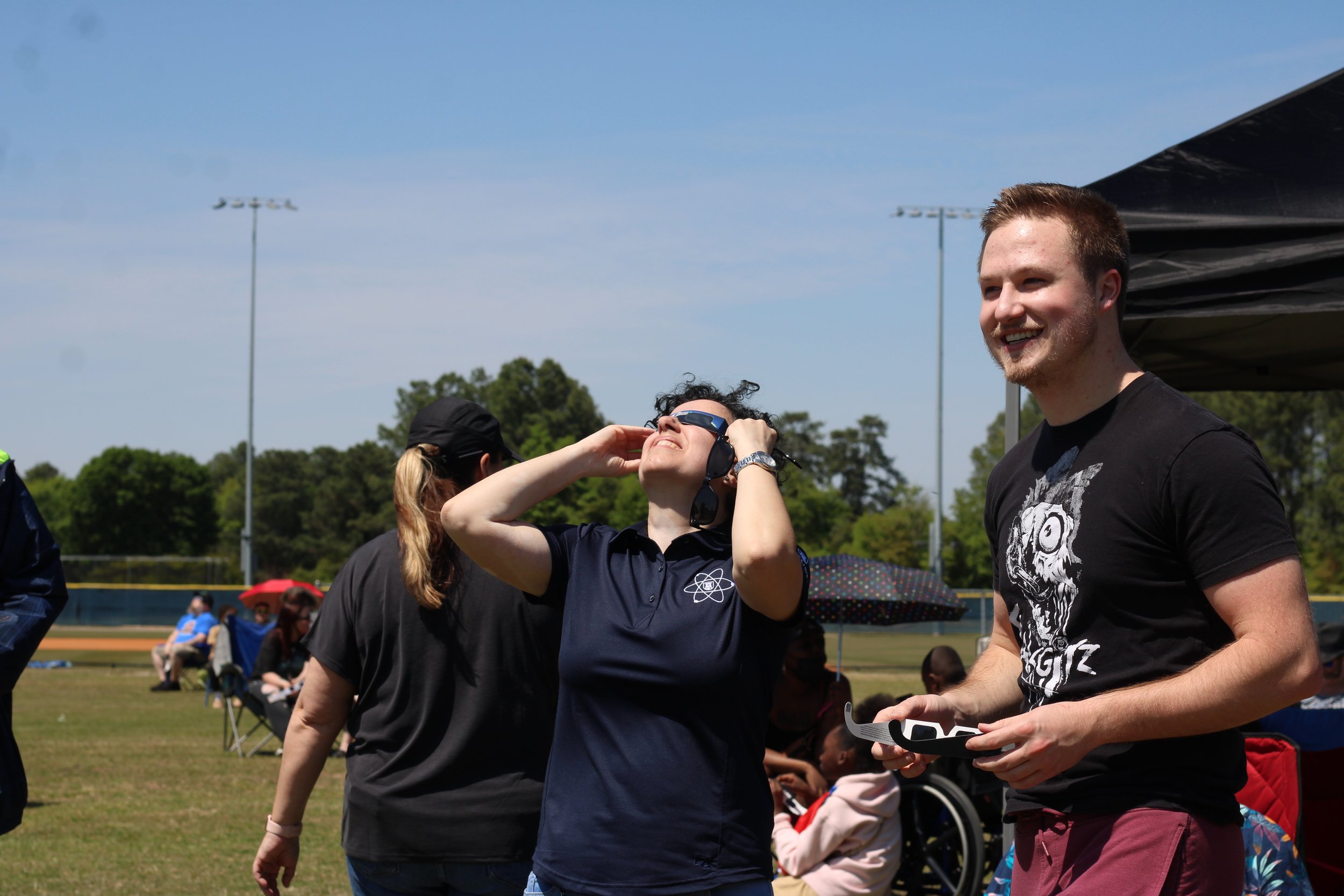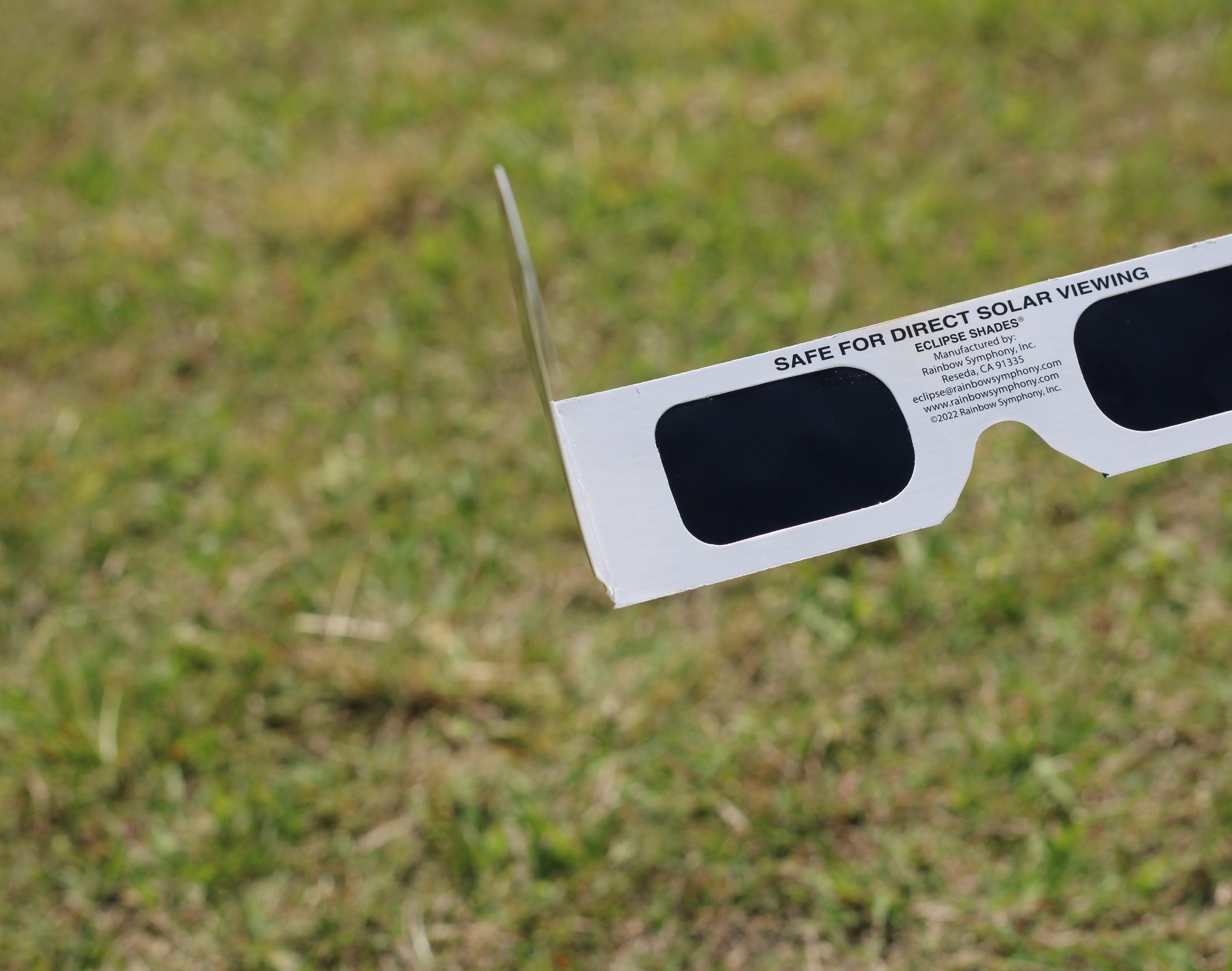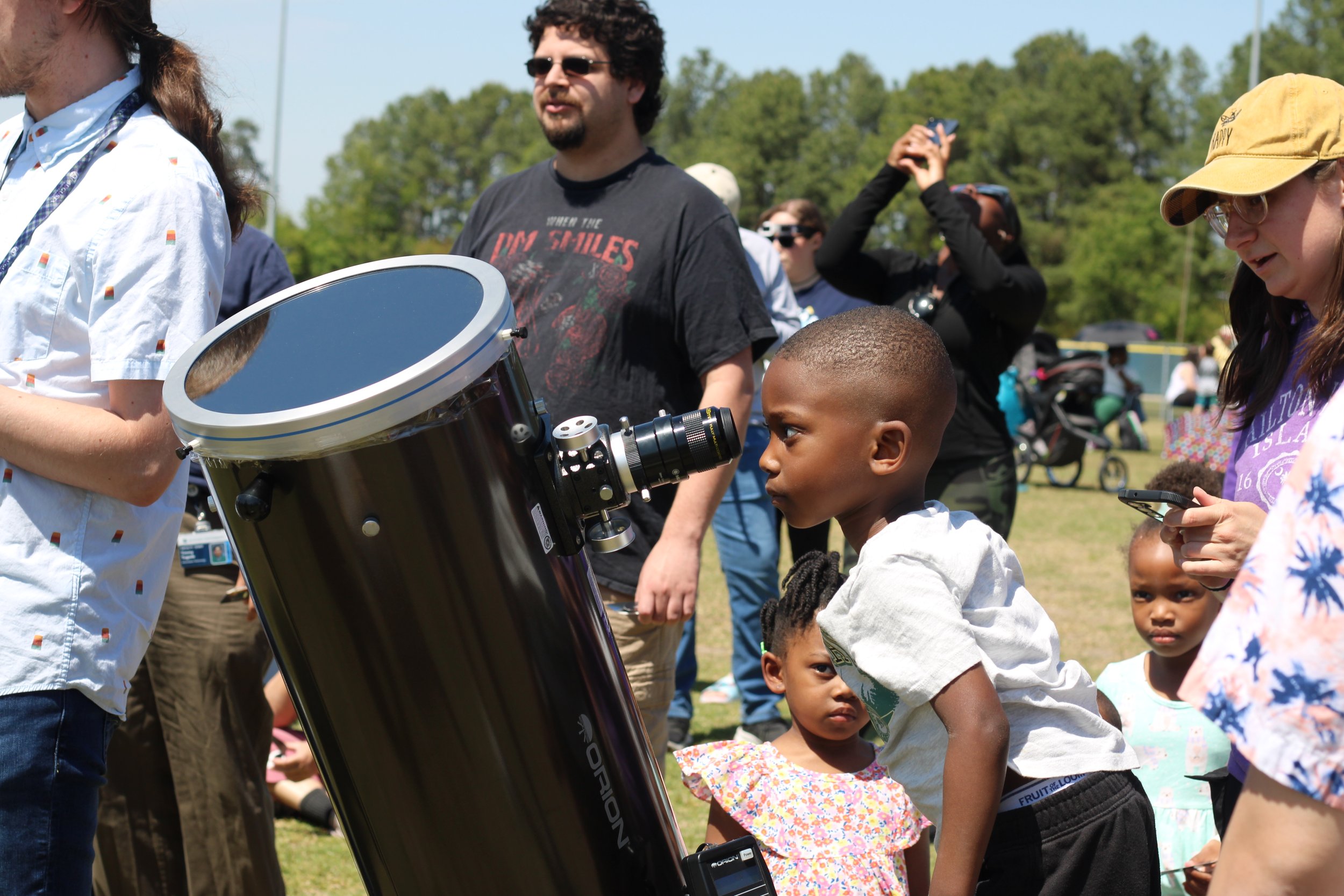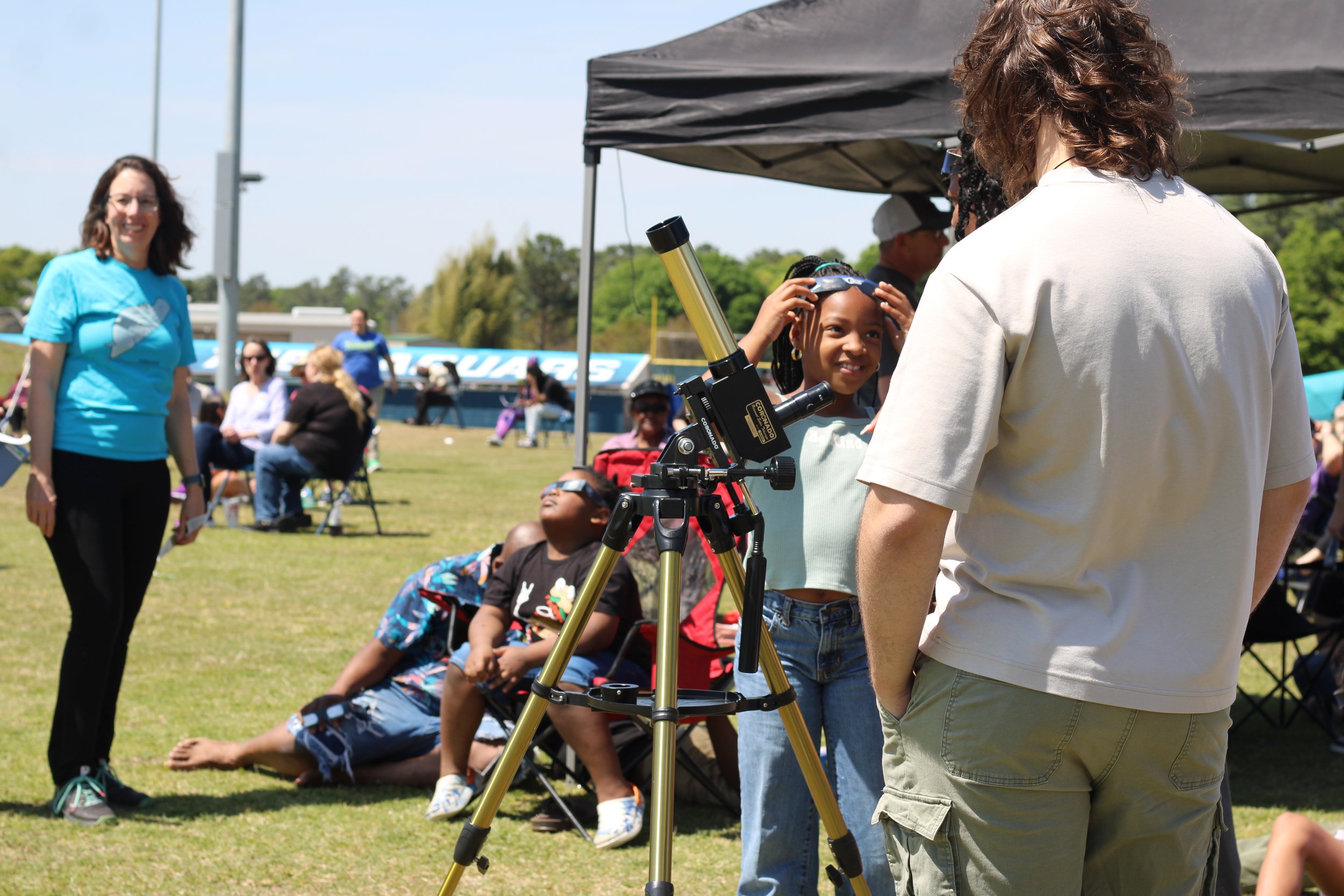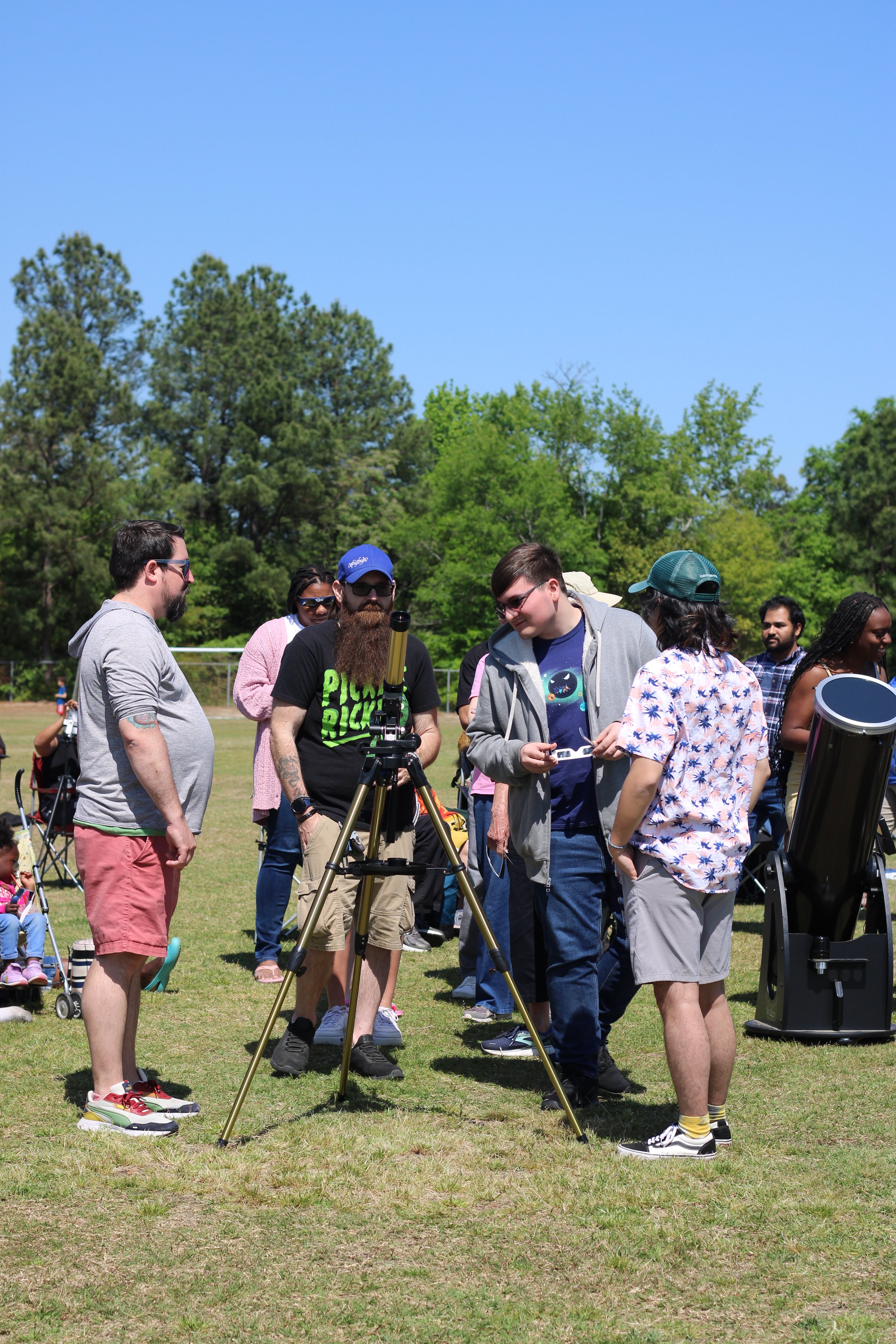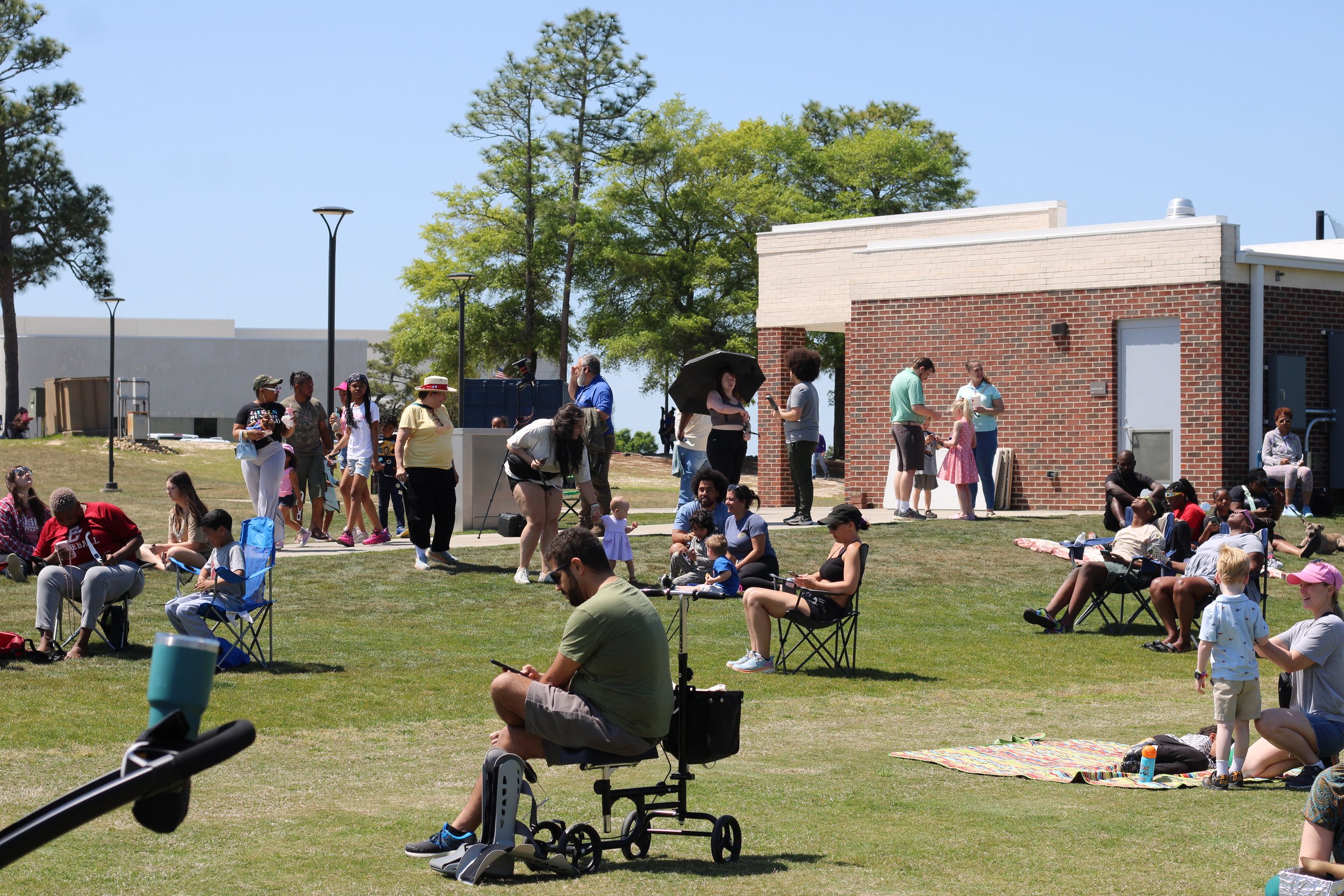There won't be another total eclipse in the United States for two decades. Here's how AU watched the 2024 solar eclipse
The moon passed in front of the sun on Monday, April 8, marking a partial solar eclipse for the Augusta area. At top of page, a young boy views the eclipse through a telescope. (photos by Rakiyah Lenon)
By Rakiyah Lenon | Editor in chief
The Augusta University Physics Club hosted a viewing party for the local community to watch the solar eclipse on Monday, April 8 at the Christenberry Fieldhouse Intramural Field.
People gathered with picnic blankets and lawn chairs to witness the celestial event as the moon passed over the sun. Attendants were able to receive eclipse viewing glasses free of charge while supplies lasted. Special solar telescopes were also available for people to safely view the eclipse.
The Augusta area experienced a partial eclipse, with 75 percent to 80 percent being visible between the times of 1:49 p.m. and 3:50 p.m. Other cities in the United States were in the path of totality, including the cities of Dallas, Cleveland and Buffalo, N.Y.
With Monday, April 8 also kicking off the start of Masters Week, it was a history making moment, marking the first solar eclipse to take place at the tournament.
The next total solar eclipses that will be visible in the United States are expected for 2044 and 2045.
Below is a series of photos from Monday’s viewing event. (photo by Rakiyah Lenon)
Contact Rakiyah Lenon at rlenon@augusta.edu.



